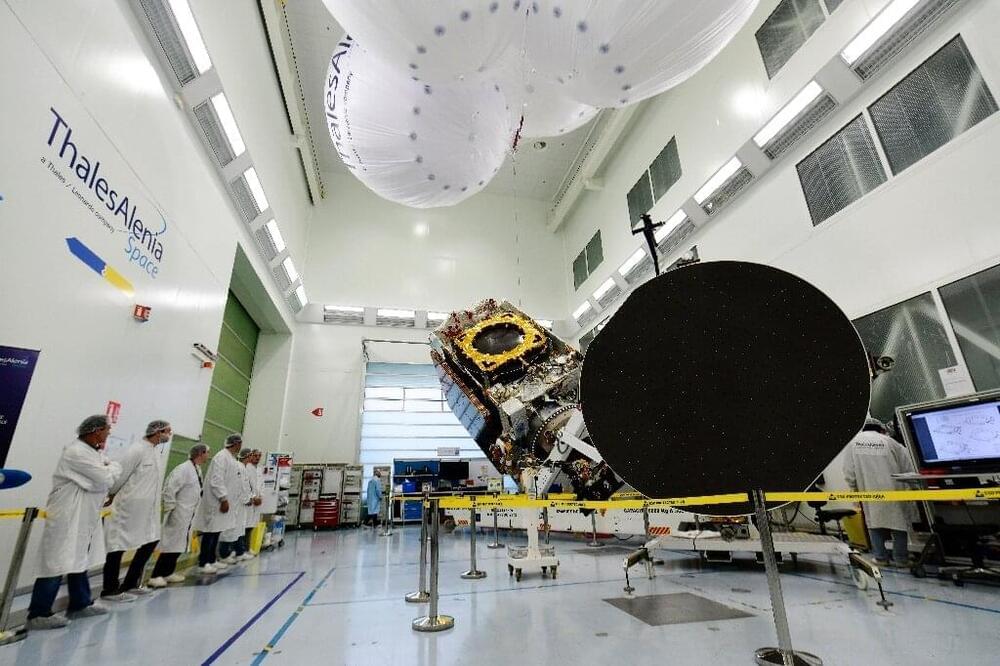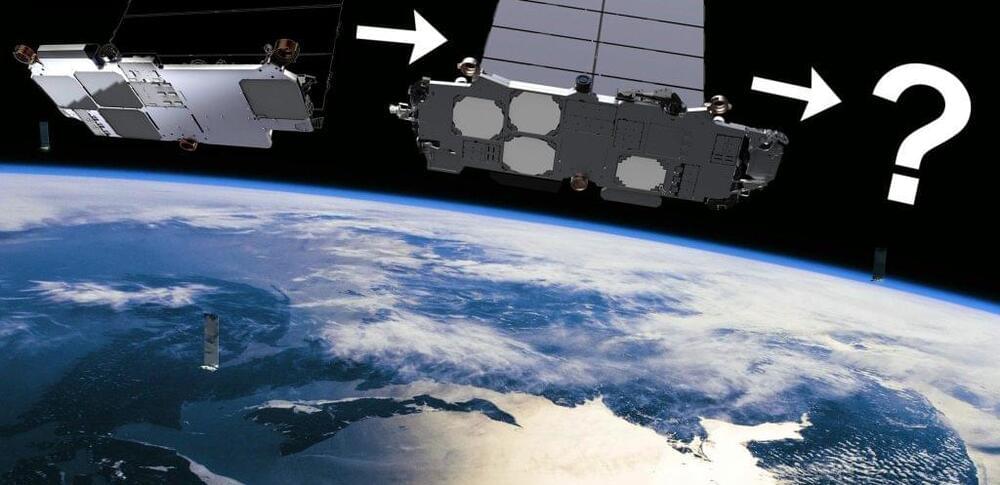The European Commission has published its DESI 2022 report, which looks at how much digitalization progress member states are making. It highlighted that the deployment of 5G is going too slow.




French satellite operator Eutelsat said on Monday it was in talks with British counterpart OneWeb for a tie-up to create a “global champion” in broadband internet, rivaling US services like Elon Musk’s Starlink.
Satellite broadband promises to bring coverage to the most remote areas of the planet by doing away with the need for antennas and other infrastructure.
It will also supply internet on commercial aircraft and to products like connected cars.

Using GPT-3, Calamity AI developed a short film script called Date Night. GPT-3 is the third generation Generative Pre-trained Transformer, is a neural network ML model trained using internet data to generate any type of text. GPT-3 has been used to create articles, poetry, stories, news reports, and dialogue using just a small amount of input text that can be used to produce large amounts of quality content. Developed by OpenAI, it requires a small amount of input text to generate large volumes of relevant and sophisticated machine-generated text.
Enter Calamity AI, a pair of film students in California collaborating with an AI to write original short films and produce for YouTube. It aims to showcase the results of AI and humans working in tandem. The limitations of artificial intelligence restrict it from doing every element of the filmmaking process.

LONDON/PARIS, July 24 (Reuters) — French satellite company Eutelsat (ETL.PA) is poised to buy British rival OneWeb in a deal that could be announced as early as Monday, two sources close to the negotiations said on Sunday.
OneWeb was valued at $3.4 billion in its most recent funding round, one of the sources said. Eutelsat already has a 23% stake in OneWeb and is its second-biggest shareholder.
The merger of the two companies would strengthen their position in the race to build a constellation of low-orbit satellites, challenging the likes of Elon Musk-owned SpaceX’s Starlink and Amazon.com Inc’s (AMZN.O) Project Kuiper.
Visit https://brilliant.org/MarcusHouse/ to get started learning STEM for free, and the first 200 people will get 20% off their annual premium subscription.
The steady stream of news continues. Where we had unexpected explosive things to dive into last week, this week a much more positive, planned and progressive run of testing at SpaceX’s Starbase. SpaceX Starship Pressure Builds, Starbase 2 also screaming forward. Starlink Breaks Record with Starlink with an almost relentless cadence of Falcon 9 hurling launch after launch into orbit. Loads more to talk about with the wonders coming from the JWST, a bunch of news with Relativity Space Terran 1 and much more. Welcome to yet another incredible week.
Join the mailing list to be notified when I release a video.
https://marcushouse.space/email-list.
👕Like this shirt? Pick it up on any product you like here.
https://marcus-house.myspreadshop.com/star+ship+mars+-+dark?…6c7eb40b76
Or in reverse.
https://marcus-house.myspreadshop.com/star+ship+mars+-+light…70513a72c1
🎁 Marcus House Merch — https://marcus-house.myspreadshop.com/
You can support me on:
An Israeli security researcher has demonstrated a novel attack against air-gapped systems by leveraging the SATA cables inside computers as a wireless antenna to emanate data via radio signals.

On Monday, SpaceX was spotted loading some of the first Starlink V2 satellite prototypes into a custom mechanism designed to refill Starship’s magazine-like payload bay.
While it’s not the first time SpaceX has used the dispenser, the photos captured by photographer Kevin Randolph are the first to clearly show real prototypes of the next generation of Starlink satellites. According to CEO Elon Musk, those Starlink Gen2 or V2 satellites will be “at least 5 times better”, “an order of magnitude more capable,” and about four times heavier than current (V1.5) Starlink satellites.
The potential of the new satellite bus design paired with Starship’s massive fairing and lift capacity could dramatically improve the viability and cost-effectiveness of SpaceX’s Starlink constellation. First, though, the company needs to launch and qualify prototypes of the new satellite design and verify that all associated ground support equipment works as expected.

If you had to describe Rich Uncle Pennybags—the Monopoly mascot—would you mention his top hat? His mustache? How about his monocle?
The face of the famous board game has, in reality, never worn a monocle. Yet, many people confidently list the accessory when recalling his features—an example of a phenomenon of false visual memories.
A forthcoming paper by University of Chicago scholars, currently available in preprint, found that people have consistent, confident, and widespread false memories of famous icons—also known as the Visual Mandela Effect. Co-authored by University of Chicago scholars, the paper is the first scientific study of the internet phenomenon.
